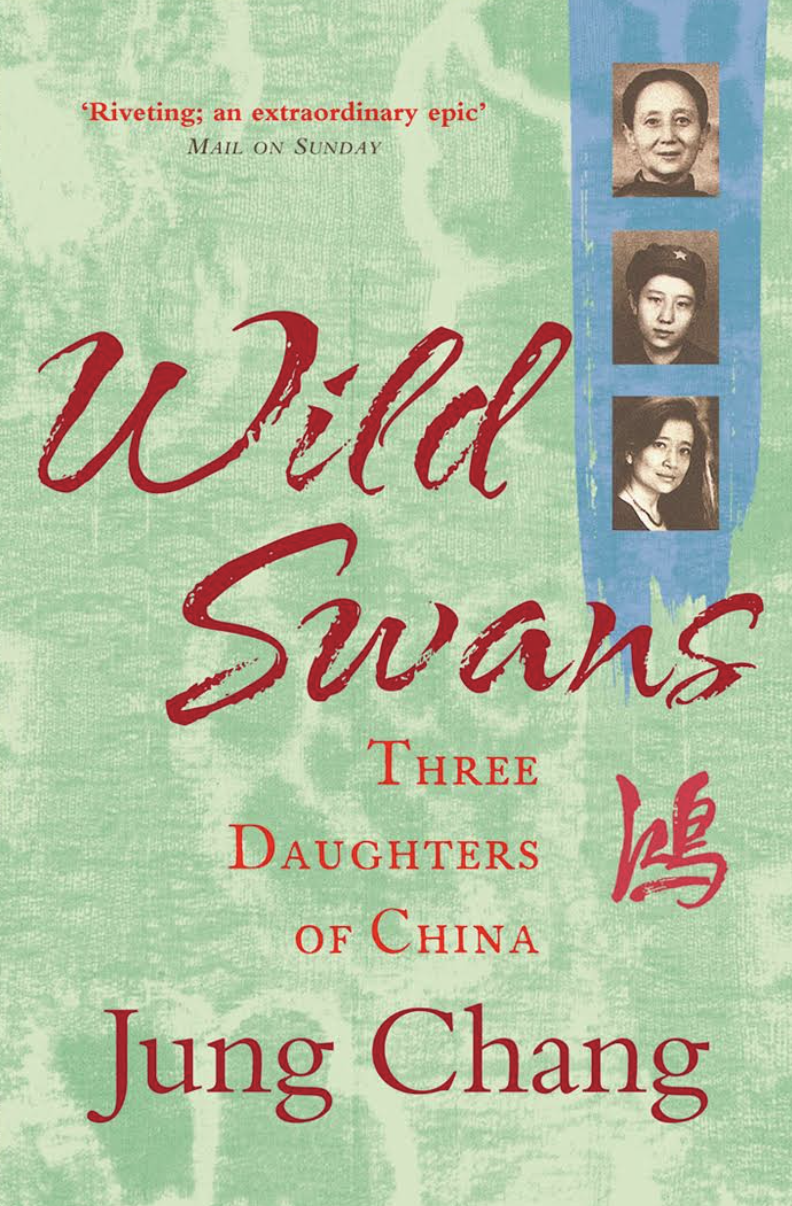Wild Swans Three Daughters of China
The book is about three Chinese protagonists, the grandmother, the mother and the daughter and their respective true life stories in China.

It captivates me, because it is told from an individual perspective and brings color to the corrupt imperial time ( -1911), the chaotic warlord time (1916-1928), the brutal time under the Kuoming Dang and the Communist Party during Japanese occupation (1937-1945) over to eventually the Mao and Post-Mao era (1945 - )
I had little idea of what an emotional, restless recent history China had and the book leaves me dumpstruck.
While naturally I have a strong personal interest in the matter, I do believe it is worthwhile reading it for anyone who is interested in current affairs with China, from an economic or geopolitical point of view ― I find that there are a lot of elements in this book that help explain the mentality of Modern Chinese people and why they think the way they do.
For me personally, it resonates deeply for two reasons:
First, I realize that my parents and grandparents were directly living through the different times of China and how all of those socio-economic factors have shaped their thinking and values systems today. Through this book, I feel much closer to where they are coming from.
My mum, for example, would always criticize me. As a child growing up in German, I disliked her for not saying anything nice to me like all the other German parents would do. Having read the book now, I understand that self-criticism and criticizing other people at length was part of Mao's ideology to "clean" yourself and keep order. Could her behavior towards me be explained by her own upbringing in a (self-) criticizing society?
It certainly sparks my curiosity to learn more about my parents and grand-parents own experiences when they grew up.
Second, business and societal practices and habits seem to have roots in history. For exmaple, the concept of saving face is deeply Chinese. After reading the book, I wonder whether the concept stems from the Great Leap Forward. The time where an "economic leap" was to be achieved through industrialization and steel production which eventually disguised a deep economic regression and left many people dead due to economic mismanagement and famine.
People were in denial, partially because they couldn't criticize the system and partially to guard their face which led to people not only ignoring economic misconducts but more importantly exaggerating and praising those. Apparently, it got to a point where the book describes the atmosphere as "doublespeak": one thinks something and says something else (referencing George Orwell's 1984).
Of course those are just my personal thoughts. This book leaves me in awe, because having lived in China for the past four years, I have come across a very Modern, a very fast-paced and digitized Chinese nation, and yet it is so interesting to me to see how elements of history and traditions still shine through in the fabric of people's thoughts ― as it is certainly the case for any modern nation and their history.